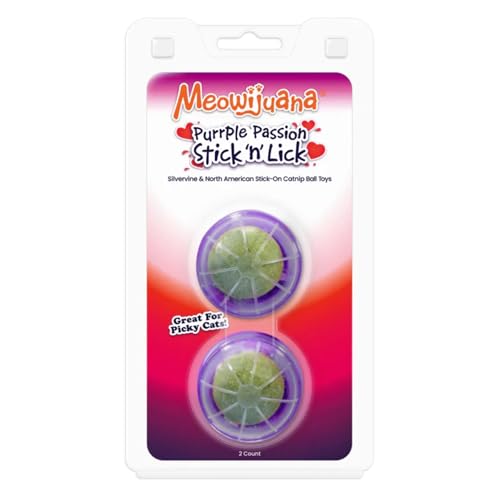Why do cats lick themselves?
If you’ve ever watched a cat grooming itself, you might wonder why they spend so much time licking. Well, it turns out that there are several reasons behind this quirky behavior. Let’s dive into the fascinating world of cat grooming and explore why cats love to lick themselves.
Maintaining a Clean Coat
Cats are known for being clean animals, and grooming is an essential part of their self-care routine. When a cat licks itself, it helps to remove dirt, debris, and loose hair from its fur. The rough texture of a cat’s tongue acts like a built-in brush, helping to keep their coats shiny and sleek.
Spreading Natural Oils
Another reason cats lick themselves is to distribute natural oils throughout their fur. These oils help to keep their skin moisturized and their fur waterproof. By licking, cats are essentially giving themselves a mini spa treatment, ensuring their fur stays healthy and well-protected.
Promoting Bonding and Socializing
Licking also plays a significant role in cat socialization. When cats groom each other, it’s a form of bonding and establishing trust. By licking their littermates or feline friends, cats strengthen their social connections and create a sense of belonging within their social groups.
Calming and Comforting
Licking can also be a way for cats to self-soothe and relieve stress. The repetitive motion of licking can have a calming effect on a cat’s nervous system. It’s like their version of a stress ball or a cozy blanket. So, the next time you see your furry friend engaged in a grooming session, remember that it’s their way of finding comfort and relaxation.
The benefits of cat licking
As a cat lover, you may have noticed that cats spend a considerable amount of time grooming themselves. All that licking may seem excessive, but did you know that it actually serves several important purposes? Let’s explore the benefits of cat licking and why it’s an essential part of a cat’s routine.
1. Maintaining a clean coat:
Cats are known for their cleanliness, and licking plays a vital role in keeping their fur clean. They use their rough tongues to remove dirt, debris, and loose hair from their coats. This not only helps them look tidy but also prevents matting and keeps their skin healthy.
2. Spreading natural oils:
When cats lick themselves, they’re not only cleaning their fur, but they’re also spreading natural oils. These oils help to moisturize their fur, keeping it soft, shiny, and free from dryness. By distributing these oils throughout their coat, cats ensure that their fur stays in top condition.
3. Establishing trust and strengthening social connections:
Licking is not only a self-grooming behavior for cats but also a way to establish trust and strengthen social connections with other cats or their human companions. Mother cats groom their kittens as a way of bonding, and adult cats often groom each other as a sign of friendship and affection. So, when your feline friend licks you, it’s a sign that they trust and love you!
4. Relieving stress and promoting relaxation:
Have you ever noticed your cat licking themselves more when they’re stressed or anxious? That’s because licking has a soothing effect on cats. It releases endorphins, which are natural “feel-good” chemicals in their brains. So, when your cat licks, it’s their way of self-soothing and finding comfort.
Remember, while cat licking is beneficial, excessive licking can indicate a problem. If you notice your cat obsessively licking or causing harm to themselves, it’s important to consult a veterinarian.
Now you know why cats spend so much time grooming themselves! Cat licking serves multiple purposes, from keeping their fur clean to promoting social connections and providing stress relief. So the next time you see your furry friend engrossed in a grooming session, appreciate the many benefits it brings to their overall well-being.
The role of licking in bonding
When it comes to cats, licking plays a crucial role in building and strengthening bonds. As a cat lover, you may have noticed that cats often engage in mutual grooming sessions with their feline companions. This act of grooming not only helps them maintain a clean coat, but it also serves as a form of social bonding.
Imagine this: You’re sitting on the couch, and your furry friend jumps up to join you. As you stroke their back, they start to lick your hand. Don’t be surprised! They’re actually showing their affection for you. Cats use licking as a way to mark you as part of their social group and to create a sense of belonging.
But it’s not just with other cats or humans that cats use licking to form stronger connections. You may have noticed your cat licking your hair or face when you’re snuggled up together. This behavior is a sign of trust and is their way of showing that they feel safe and comfortable in your presence. It’s their way of saying, “You’re a part of my family.”
So, the next time your cat licks you, remember that it’s not just about grooming or keeping clean. It’s their way of communicating and bonding with you. Embrace and cherish these moments of connection and affection.
Keep in mind that excessive licking, scratching, or grooming can also be a sign of stress or an underlying health issue. If you notice your cat obsessively licking themselves or others, it’s best to consult a veterinarian to rule out any potential problems.
Licking plays a significant role in bonding for cats. It’s their way of expressing love, trust, and a sense of belonging. So, the next time your cat licks you, feel honored and loved, as they are declaring their affection for you in the best way they know-how.
Unusual things cats lick
As a cat lover, you know that cats are curious creatures who love to explore and investigate their surroundings. This curiosity often leads them to lick some rather unusual things. Here are a few examples of the unusual things cats sometimes find themselves licking:
- Plants – Cats are known for their love of chewing on grass, but they may also lick other plants in your home or yard. Some plants can be toxic to cats, so it’s important to ensure that your feline friend is not licking anything harmful.
- Plastic Bags – It’s not uncommon to catch your cat licking a plastic bag. The crinkly texture and sound may be enticing to them. However, it’s important to keep plastic bags out of your cat’s reach, as they can pose a choking hazard or cause digestive issues if swallowed.
- Hard Surfaces – Cats may lick hard surfaces such as walls, floors, or even furniture. This behavior could be a sign of a mineral deficiency, boredom, or a dental problem. If you notice excessive licking of hard surfaces, it’s best to consult with your veterinarian.
- Metal Objects – Some cats have a fascination with licking metal objects, such as door handles or jewelry. This behavior could be due to the taste or sensation that metal provides. However, be cautious of your cat licking objects that may contain harmful chemicals or substances.
- Human Skin and Hair – Cats may also lick their human companions. This behavior is often seen as a sign of affection and trust. When a cat licks your skin or hair, they are engaging in grooming behavior and showing that they feel comfortable and safe in your presence.
While these behaviors may seem unusual to us, they are a natural part of a cat’s instinctual behavior. It’s important to monitor your cat’s licking habits and ensure their safety and well-being. Excessive licking, especially to the point of causing harm or distress, should be brought to the attention of a veterinarian.
Remember, cats are unique individuals with their own quirks and preferences. Embrace their curiosity and enjoy the special bond you share with your feline friend, even if it means witnessing some of their more unusual licking habits.
Common concerns about excessive cat licking
If you notice that your cat is licking themselves more than usual, you might start to worry. While some licking is normal, excessive licking can be a cause for concern. As a cat lover, enthusiast, and expert, let me address some common concerns about excessive cat licking.
- Skin problems: Excessive licking can lead to skin irritations and infections. Your cat’s constant licking may be a sign of an underlying skin condition such as allergies or dry skin. It’s important to keep an eye on your cat’s skin and address any issues promptly.
- Behavioral issues: Some cats may develop excessive licking as a response to stress, anxiety, or boredom. If your cat is constantly licking themselves, it could be a sign that they are not getting enough mental or physical stimulation. Providing enrichment and interactive toys can help alleviate their stress and prevent excessive licking.
- Gastrointestinal problems: Cats may lick excessively if they have an upset stomach or digestive issues. If your cat’s excessive licking is accompanied by other symptoms like vomiting or diarrhea, it’s essential to consult with a veterinarian to rule out any underlying health problems.
- Pain or discomfort: Cats may lick a specific area of their body if they are experiencing pain or discomfort. It could be due to an injury, arthritis, or an underlying medical condition. If you notice your cat focusing their licking on a particular spot, it’s crucial to have them examined by a veterinarian.
- Compulsive behavior: In some cases, excessive licking can be a sign of compulsive behavior. Cats may engage in repetitive licking to self-soothe or as a result of anxiety. If you suspect your cat has developed a compulsive licking habit, it’s important to seek guidance from a veterinarian or a feline behaviorist.
Remember, every cat is unique, and what may be considered excessive for one cat might be normal for another. If you’re concerned about your cat’s licking habits, it’s always best to consult with a veterinarian. They can help determine the underlying cause and provide appropriate guidance to ensure the wellbeing of your feline friend.
Conclusion
Understanding the reasons behind your cat’s licking behavior is essential for their overall well-being. By licking themselves, cats are able to maintain a clean coat, spread natural oils, and keep their skin healthy. It’s also a way for them to establish trust and strengthen social connections with both humans and other cats.
Furthermore, licking has a soothing effect on cats and can help relieve stress. It releases endorphins, providing a natural form of stress relief. However, excessive licking can sometimes indicate underlying issues such as skin problems, behavioral issues, or gastrointestinal problems. It’s important to monitor your cat’s licking habits and seek guidance from a veterinarian if you notice any concerning changes.
Remember, regular grooming and providing a stimulating environment can help prevent excessive licking. By understanding and addressing your cat’s needs, you can ensure they lead a happy and healthy life. So, embrace your cat’s licking habits and cherish the bond it helps create between you and your feline companion.
Frequently Asked Questions
Q: Why do cats lick themselves?
A: Cats lick themselves to keep their coats clean, spread natural oils, establish trust, and strengthen social connections. It is also a behavior that helps relieve stress and provides comfort.
Q: What are the benefits of cat licking?
A: Cat licking has several benefits, including preventing matting, keeping the skin healthy, bonding with human companions and other cats, and releasing endorphins for stress relief.
Q: What if my cat is licking excessively?
A: Excessive licking in cats can be a cause for concern. It may indicate underlying issues such as skin problems, behavioral issues, gastrointestinal problems, pain or discomfort, or compulsive behavior. If you notice excessive licking, it’s important to monitor their licking habits and consult a veterinarian if necessary.
Q: How can I control excessive licking in my cat?
A: To control excessive licking in your cat, it’s essential to address any underlying issues first. Consult with a veterinarian to rule out any medical conditions or behavioral problems. Provide environmental enrichment, redirect their attention to toys, ensure they have a balanced diet and grooming routine, and consider using cat-friendly stress relief methods.
Q: Is excessive licking harmful to my cat?
A: Excessive licking can be harmful to cats if it leads to skin irritation, hair loss, infections, or other medical conditions. It’s important to monitor their licking habits and seek guidance from a veterinarian if you notice any negative effects or excessive behavior.
Q: How can I encourage bonding through licking with my cat?
A: To encourage bonding through licking with your cat, engage in grooming sessions using a soft brush or a damp cloth. Let your cat initiate the licking and reciprocate by gently petting or stroking them. Use positive reinforcement by offering treats or praise during and after grooming sessions. Remember to respect your cat’s boundaries and preferences to maintain trust and strengthen the bond.

















